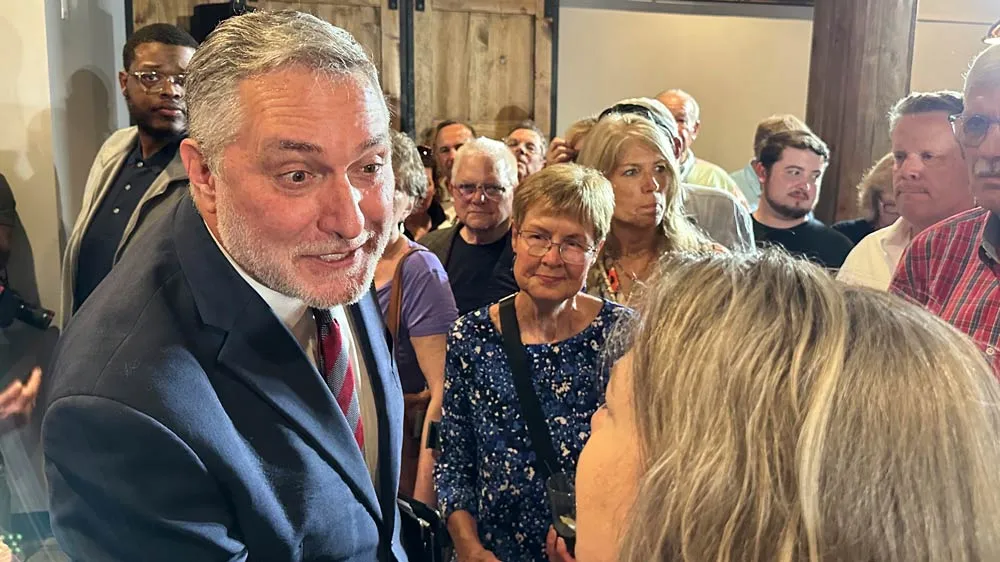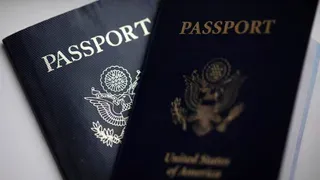May 9, 2012
Effect of NC Gay Marriage Amendment Unclear
Jason St. Amand READ TIME: 4 MIN.
RALEIGH, N.C. (AP) - North Carolina voters overwhelmingly passed a constitutional amendment that defines marriage as solely between a man and a woman, but not much is expected to change immediately.
That's because North Carolina law already banned gay marriage. The amendment voters passed Tuesday night by about 61 percent of voters effectively will seal the door on same-sex marriages and potentially have other effects farther down the road.
"Same-sex marriage was illegal today; it's illegal tomorrow," said John Dinan, a political science professor at Wake Forest University who writes an annual review of state constitutional amendments. "There were no same-sex civil unions recognized in North Carolina today. Those will not be recognized tomorrow. The bottom line is there's not a lot of change because of this amendment."
The amendment likely would affect issues other than gay marriage the most because the "marriage-plus" amendment approved in North Carolina prohibits not only same-sex marriage, but also same-sex civil unions. Nineteen states have such amendments, Dinan said.
For example, a handful of local governments provide benefits to employees who are involved in same-sex relationships. In Michigan, the state's highest court ruled that an amendment did affect those benefits, Dinan said. But in North Carolina, officials in Durham and Orange counties have said they don't expect to have to eliminate those benefits because of the amendment, he said.
Opponents had said they feared the law could affect domestic violence protections, some of which refer to people who live together. Dinan said he doubted that would happen, although Ohio had a three-year court fight over the issue before the Supreme Court ruled the laws weren't affected.
Some voters who opposed the amendment weren't that concerned with the practical effects of the amendment, but more with how it makes North Carolina look.
The amendment was unnecessary, said Sam Stone, 70, of Raleigh, who voted against it, along with his wife, Virginia, 66.
"Doing this amendment makes it seem more mean-spirited," he said Tuesday as he went to the polls.
Shane Colwell, who's studying at Southeastern Baptist Theological Seminary in Wake Forest, said the amendment clarified the definition of marriage.
"I'm a born-again Christian, and I just believe the Bible is clear that marriage is for one man and one woman," he said. "It doesn't mean that anybody's less equal than anybody else. I just think that marriage is one man and one woman."
In the final days before the vote, members of President Barack Obama's cabinet expressed support for gay marriage and former President Bill Clinton recorded phone messages urging voters to oppose the amendment.
Supporters of the amendment responded with marches, television ads and speeches. The Rev. Billy Graham, 93, was featured in full-page newspaper ads backing the amendment.
President Obama was disappointed that the amendment passed, said Cameron French, spokesman for the Obama campaign in North Carolina.
"The President has long opposed divisive and discriminatory efforts to deny rights and benefits to same sex couples," French said. "He believes the North Carolina measure singles out and discriminates against committed gay and lesbian couples, which is why he did not support it."
North Carolina is the 30th state to pass a constitutional amendment banning gay marriage. Six states - all in the Northeast except Iowa - and the District of Columbia allow same sex marriages. In addition, two other states have laws that are not yet in effect and may be subject to referendums.
Both sides said the hard-fought battle had brought new voters who will be active in other issues.
"I think we've built a huge coalition across North Carolina of people who believe godly values," said Tami Fitzgerald, head of the pro-amendment group, Vote FOR Marriage NC. "And I believe that speaks well for people in our state who have somewhat been a silent majority in the past and I think you can expect them to be very active in the future, especially when they see the impact of their grassroots efforts."
But even the state House Speaker, who supported the amendment, expressed reservations about how long it would survive. Speaker Thom Tillis said he expects the amendment to be reversed within 20 years as today's young adults age.
While legislators can easily undo a state law, it's much harder to reverse a constitutional amendment, Dinan said. The latter requires a three-fifths vote in both legislative houses, then voter approval.
"One can't rule that out," he said. "But it's become more difficult to make that change now."
The campaign manager for the group that opposed the amendment said the nation watched North Carolina on Tuesday night, wondering how the anti-forces came through.
"I am happy to say that we are stronger for it; we are better for it; our voices are louder now," said Jeremy Kennedy of Protect All NC Families. "We have courage like we never had before, and we have strength to continue on. We said all along in this campaign that when we wake up on the day after Election Day that we want to be able to say that we left no stone unturned, that we left nothing on the table."
And their fight will continue. On Wednesday, same-sex couples will ask for marriage licenses in Wilson and Durham, the start of a week-long campaign called "We Do" protesting their inability to wed.



